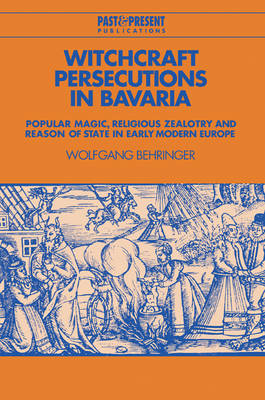Past and Present Publications
1 total work
This is a major study by a leading scholar in the field of continental witchcraft studies. Based on an intensive search through central and local legal records for south-eastern Germany, an area extending well beyond but including present-day Bavaria, the author has compiled a thorough overview of all known prosecutions for witchcraft in the period 1300-1800. He shows conclusively that witch-hunting was not a constant or uniform phenomenon, and that three-quarters of all known executions for witchcraft were concentrated in the years 1586-1630, years of particular dearth and famine. The book investigates the social and political implications of witchcraft, and how the mechanisms of persecution served as a rallying cry for partisan factionalism at court. The author also explores the mentalities behind witch-hunting, emphasizing the complex religious debates between believers and sceptics, and Catholics and Protestants.
